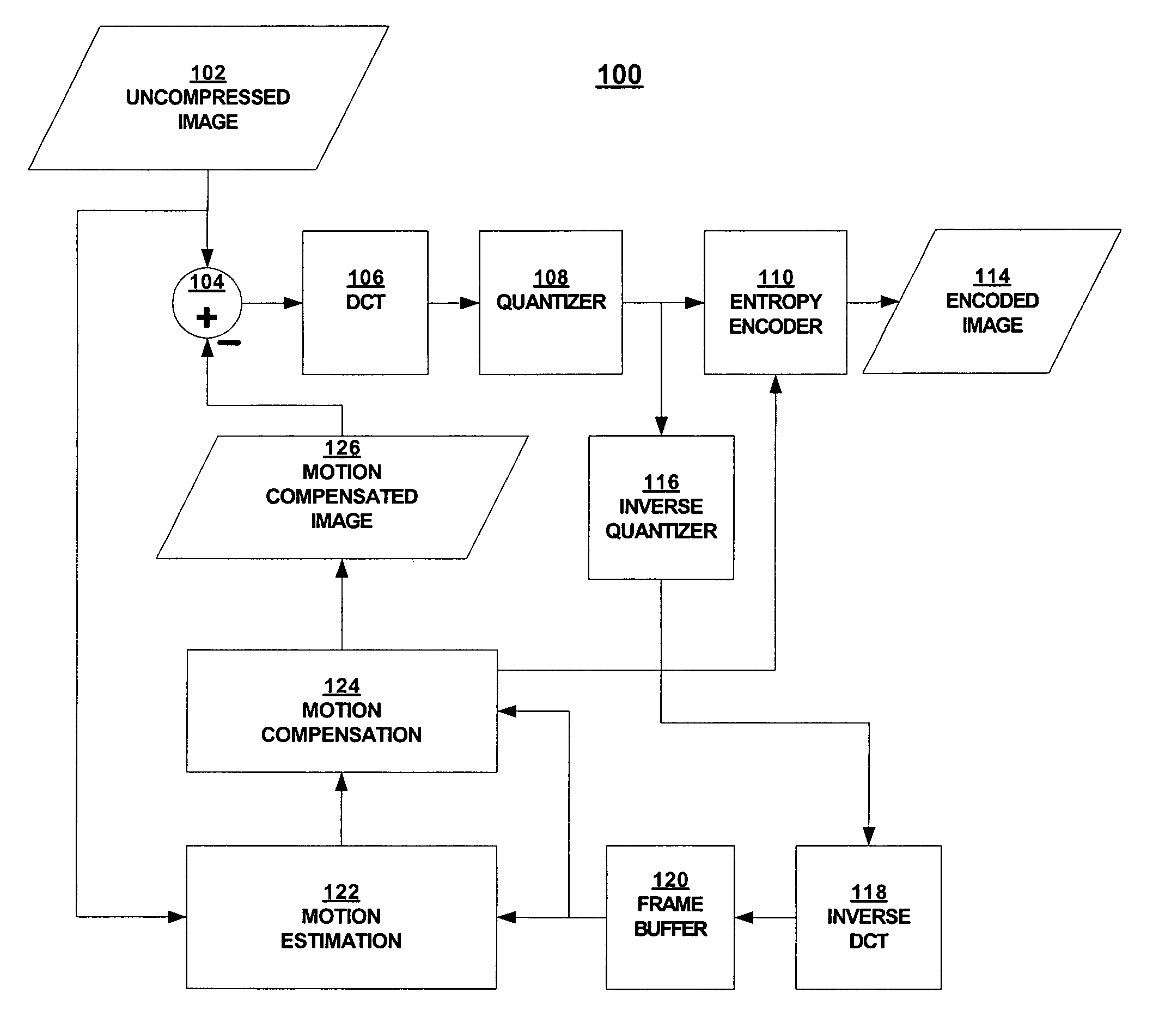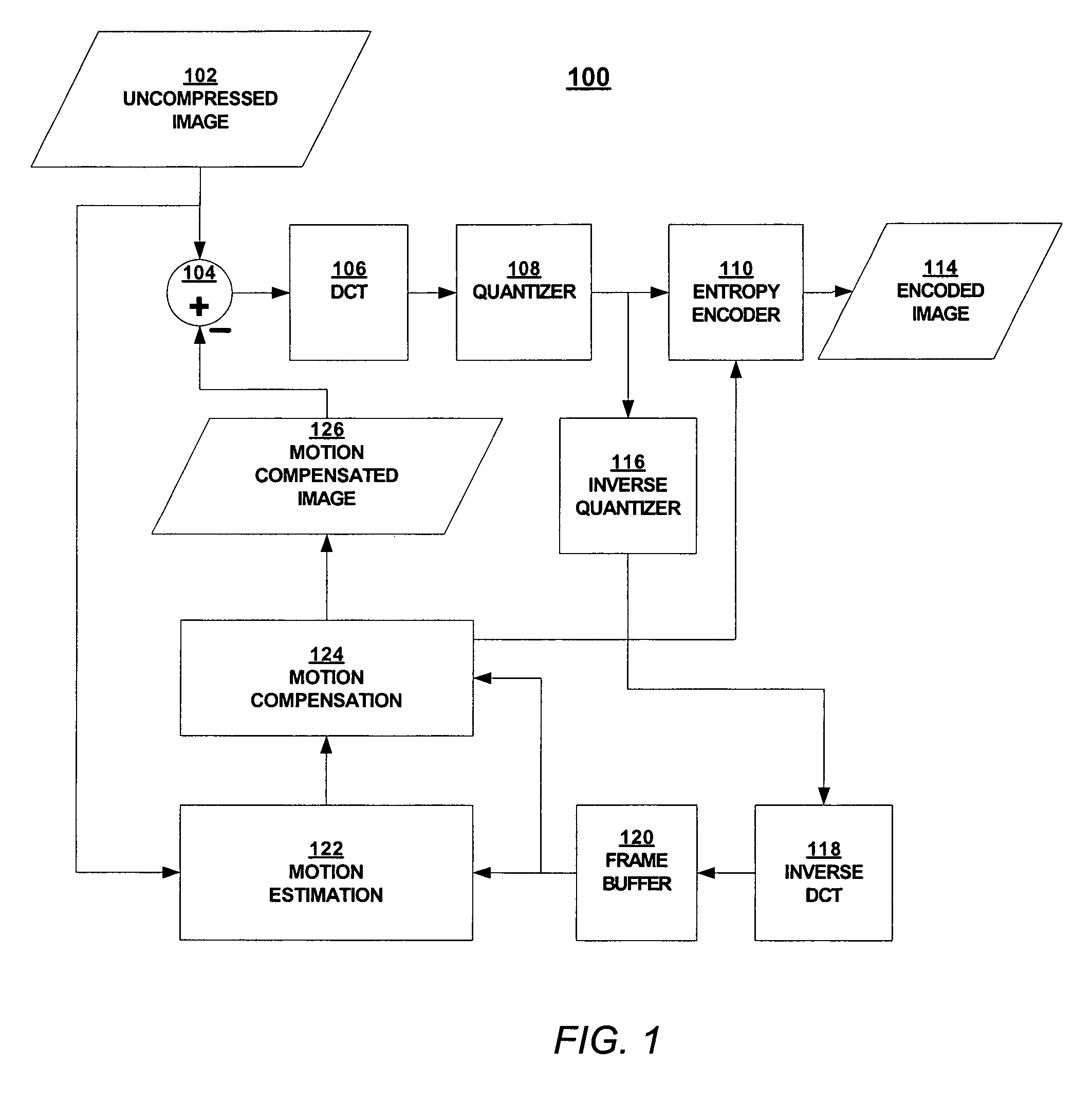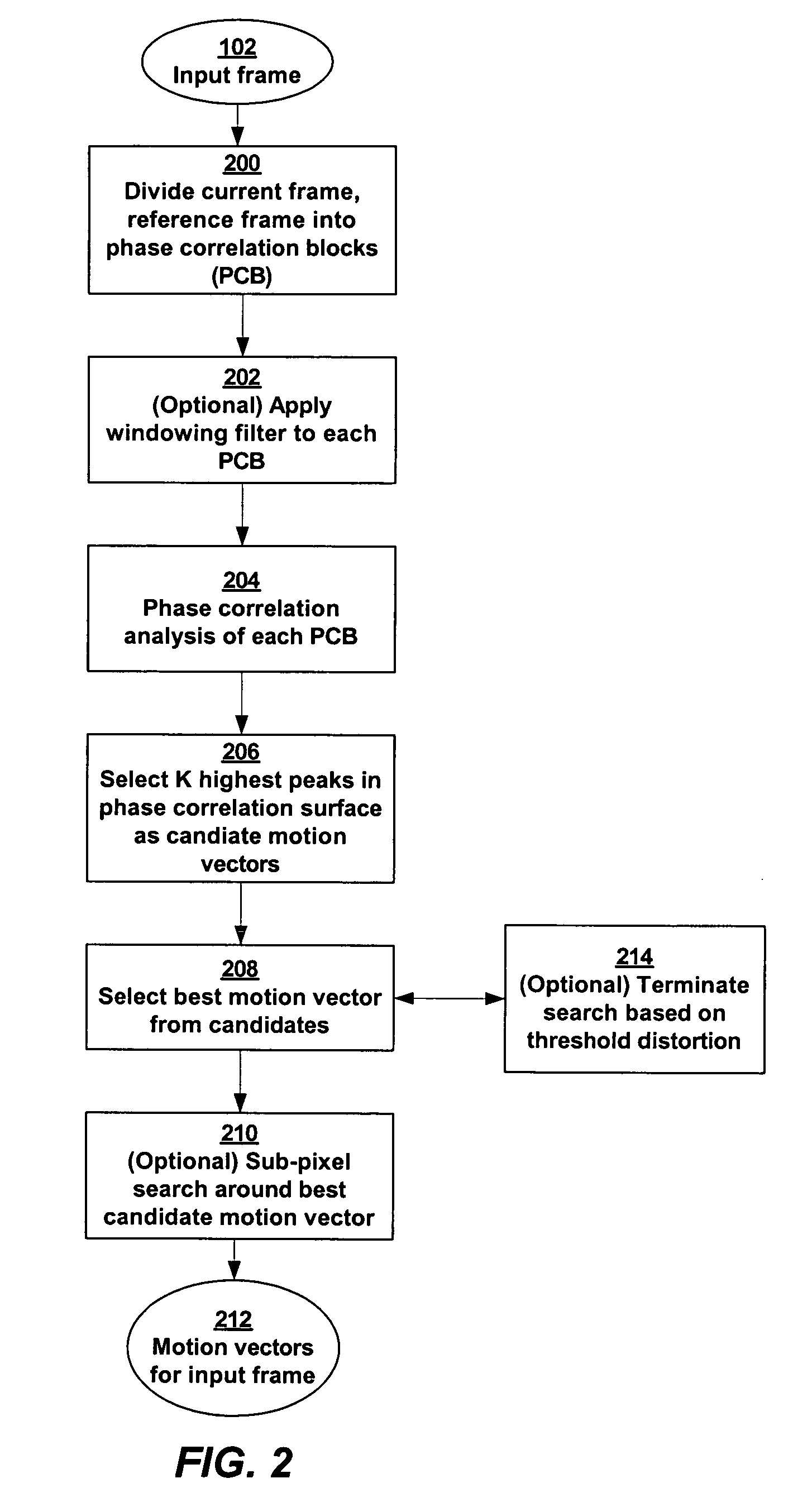Phase correlation based motion estimation in hybrid video compression
a hybrid video and motion estimation technology, applied in the field of video compression, can solve the problems of high computational complexity, large complexity of search algorithm, and dependence on complexity of search algorithm, and achieve the effect of easy scaling
- Summary
- Abstract
- Description
- Claims
- Application Information
AI Technical Summary
Benefits of technology
Problems solved by technology
Method used
Image
Examples
Embodiment Construction
[0018]Referring now to FIG. 1, there is shown a block diagram of an encoder 100 according to one embodiment of the present invention. The encoder 100 generally operates according to principles of an MPEG-1 or MPEG-2 video encoder as described in ISO / IEC 11172 and ISO / IEC 13818 or similar hybrid Motion Compensation / DCT encoder, with the additional features and structures as further described below. The encoder 100 is used to encode a video sequence that comprises a plurality of uncompressed images 102. The image 102 data comprises a plurality of macroblocks, each macroblock having either 4:x:x sample format of luminance and chrominance data, depending on the implementation.
[0019]The type of image (equivalently “frame” or “picture” or “slice”) will be one of an intra-picture (I), a forward predicted picture (P), or a bi-directional predicted (B) picture. Intra-pictures (I-pictures) are coded without reference to other pictures contained in the video sequence. In older video compressio...
PUM
 Login to View More
Login to View More Abstract
Description
Claims
Application Information
 Login to View More
Login to View More - R&D
- Intellectual Property
- Life Sciences
- Materials
- Tech Scout
- Unparalleled Data Quality
- Higher Quality Content
- 60% Fewer Hallucinations
Browse by: Latest US Patents, China's latest patents, Technical Efficacy Thesaurus, Application Domain, Technology Topic, Popular Technical Reports.
© 2025 PatSnap. All rights reserved.Legal|Privacy policy|Modern Slavery Act Transparency Statement|Sitemap|About US| Contact US: help@patsnap.com



